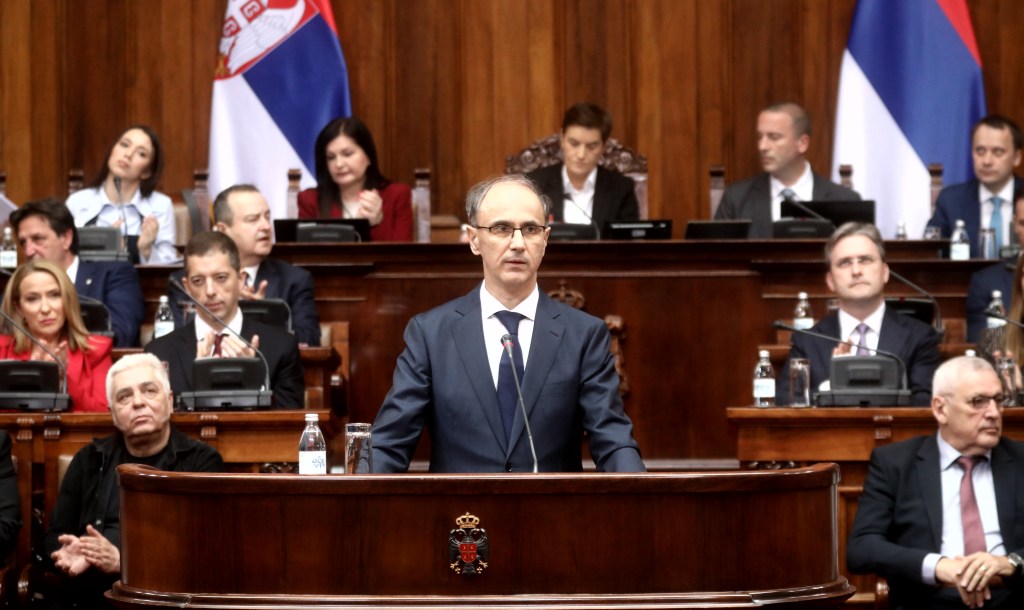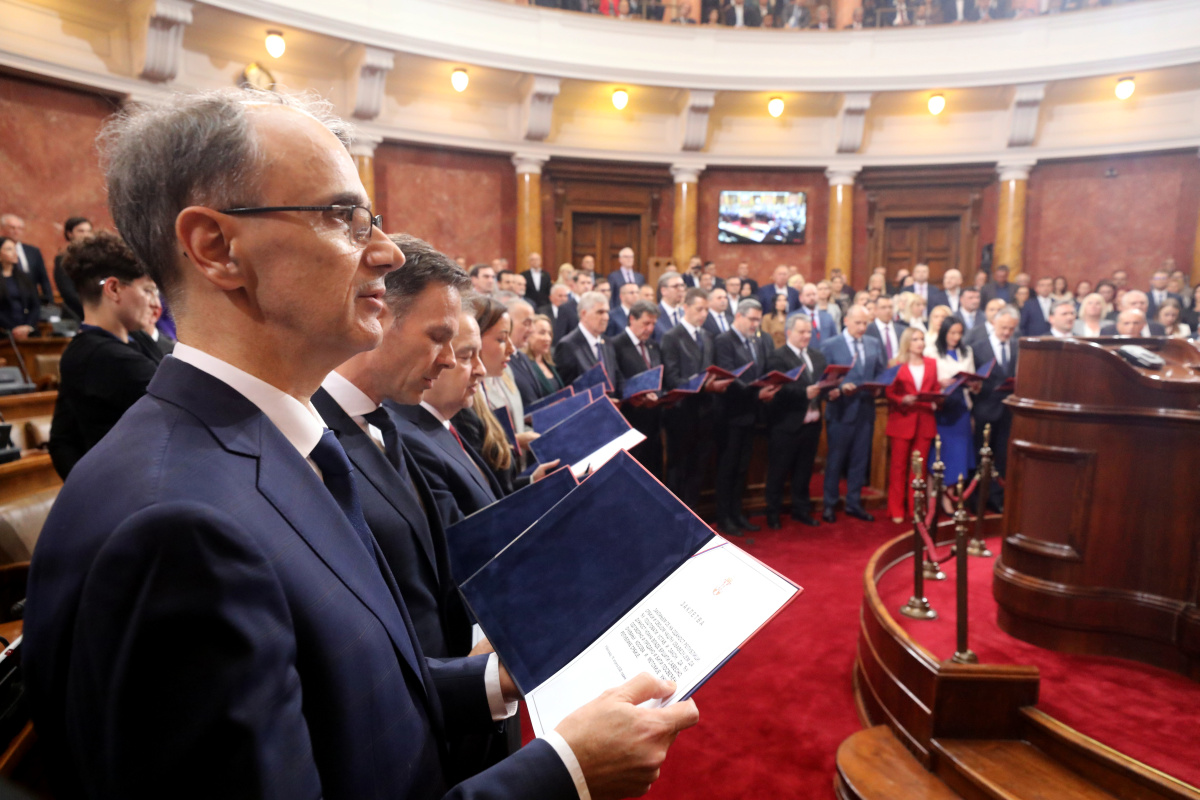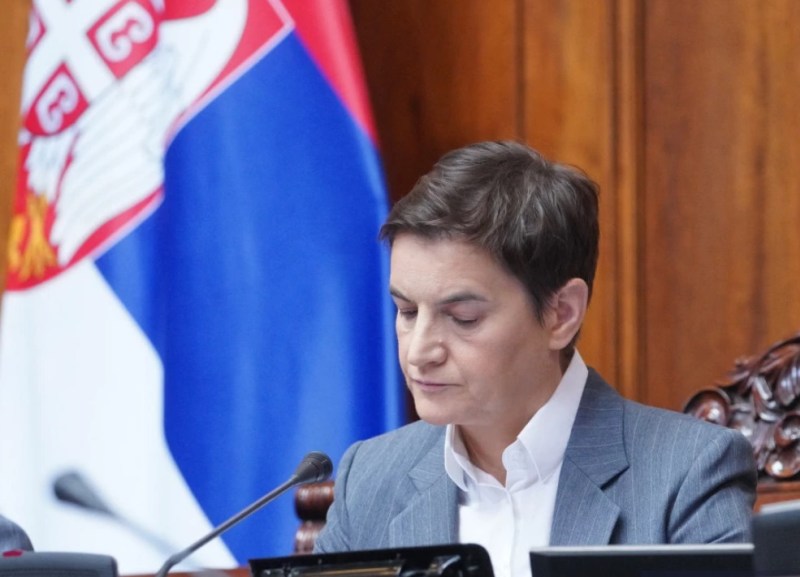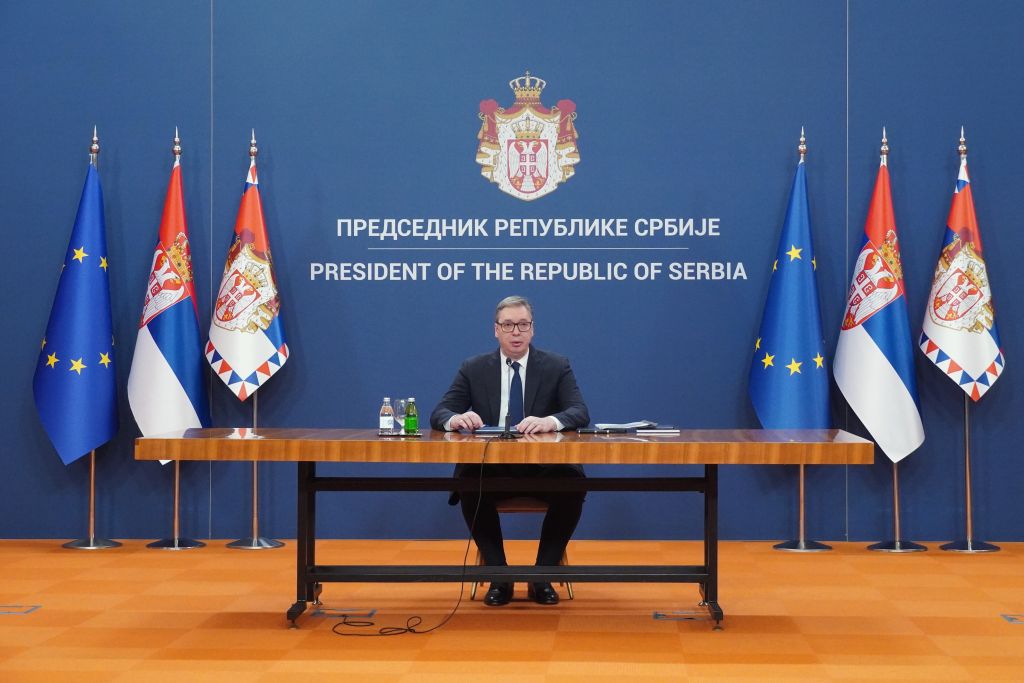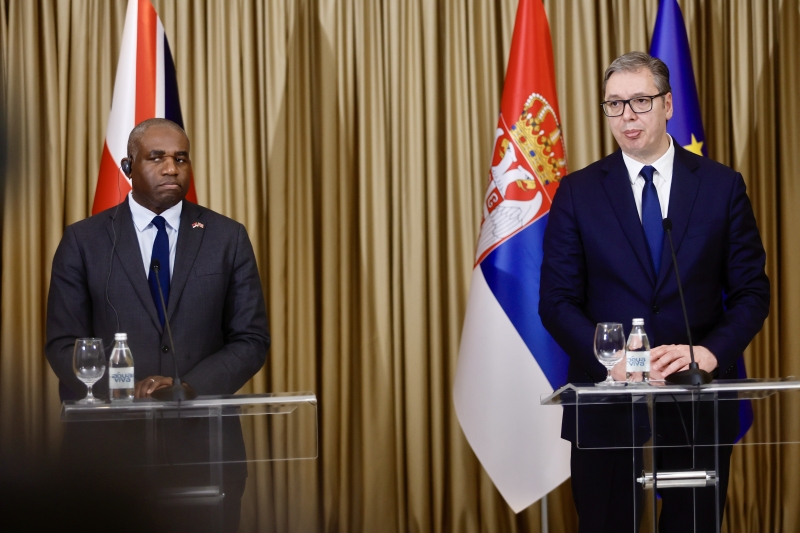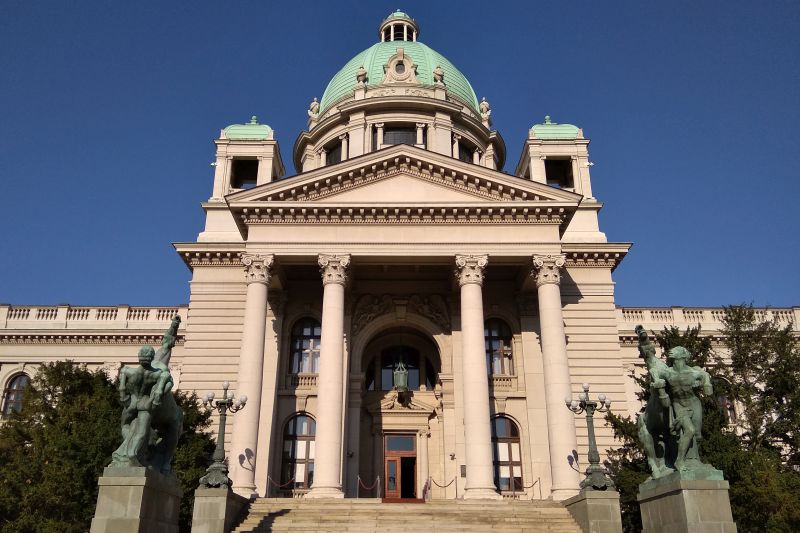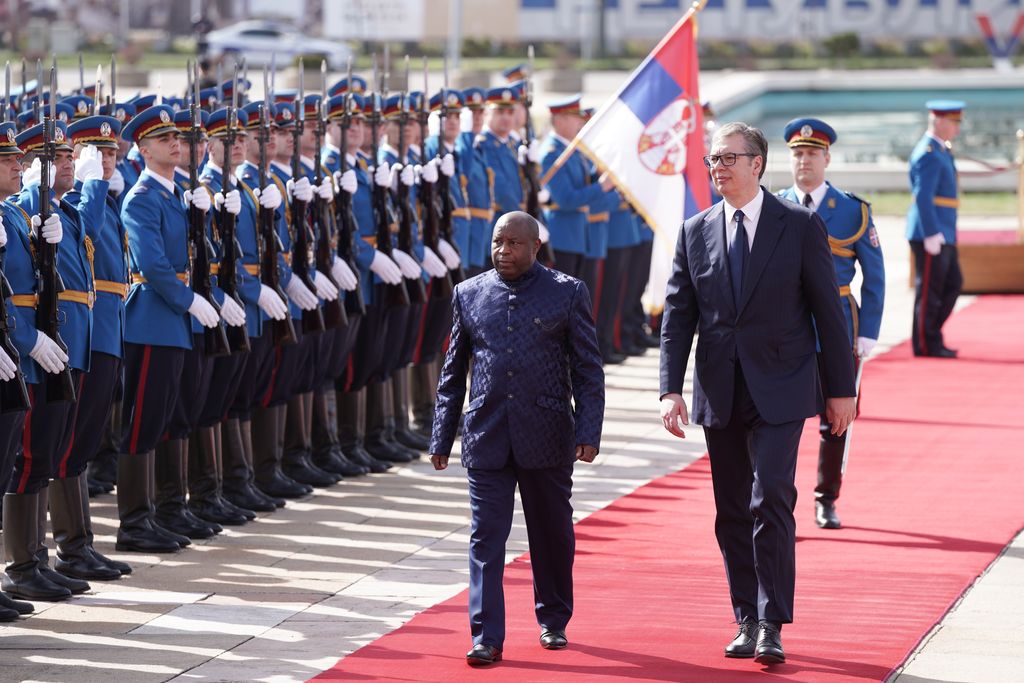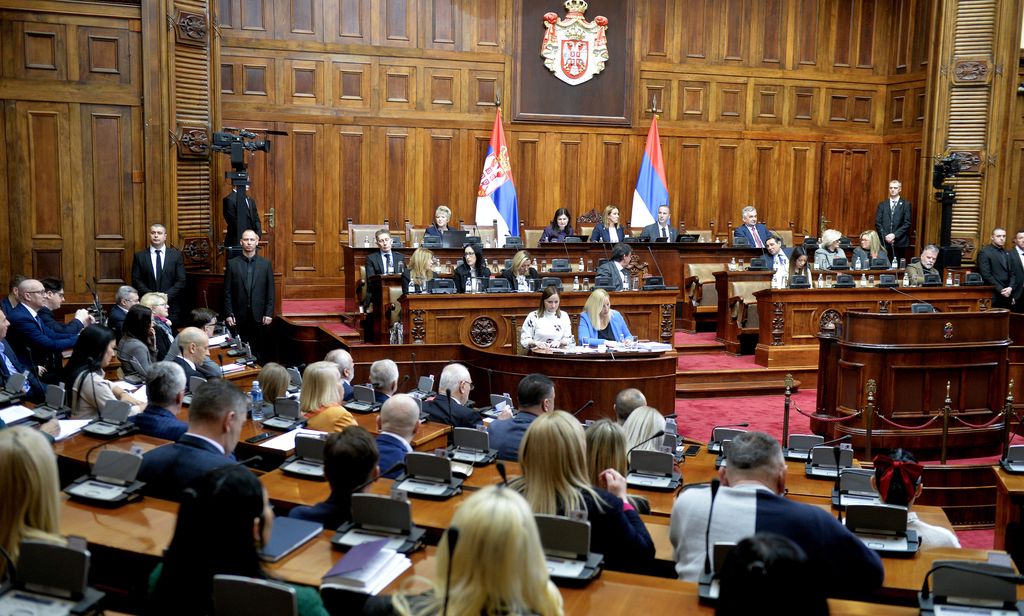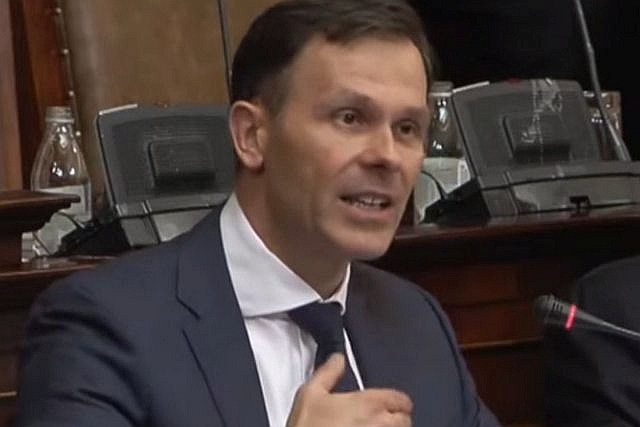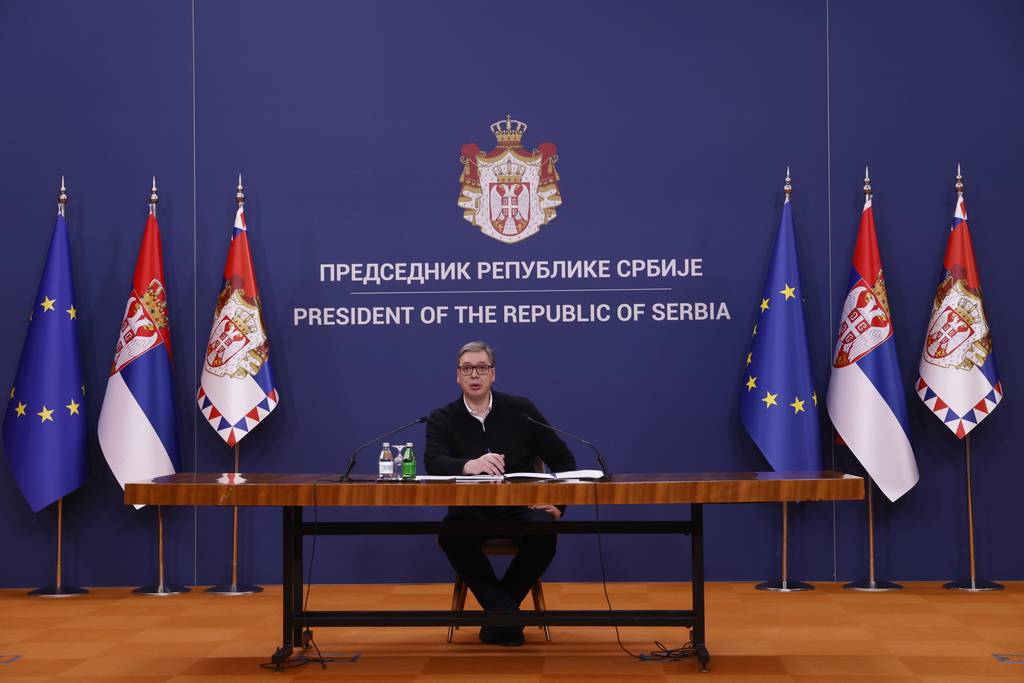Prime Minister-designate Đuro Macut assessed today that Serbia is tired of divisions and blockades and said that unity should be built through dialogue, tolerance, work and building a value system that all citizens must respect with seriousness and determination.
Building unity through dialogue, tolerance, respect for value system
Presenting the future government’s platform in the Serbian parliament, Macut called for an urgent dialogue with all stakeholders in higher education, including all rectors, vice-rectors, deans and students, in order to find acceptable solutions through dialogue and enable the continuation of university work in Serbia.
Macut added that as a university professor, having completed all university degrees, he is very well versed in the advantages and disadvantages of Serbia’s education system.
He pointed out that the harmonisation of education, which will be a key priority of the new government, is not only a technical requirement, but also entails the integration of its various aspects, synergy with science, and requires a wide range of changes that will encompass all segments of the education system, from preschool to higher education.
Macut assessed that modern education systems around the world are increasingly striving to integrate education and science with the aim of creating a dynamic environment that is not limited to theoretical knowledge, but is actively engaged in the application and development of new technologies and research.
In order to achieve a more practical application of science and its synergy with education, the Prime Minister-designate announced that he will initiate amendments to the Law on Ministries, which would remove higher education from the Ministry of Education and merge it with the science portfolio.
Speaking about recognising and supporting talented students, he said that the expert manual for recognising, supporting and monitoring students with exceptional abilities, which represents the basis for a systemic and comprehensive approach to recognising and guiding talented students, and the Generation Competitors platform, represent the first steps towards that goal.
He announced that he will require members of the government to be among and with the people as much as possible, and that government sessions, meetings and other activities be held in places where it is most appropriate to address the life problems of Serbian citizens, and not only in Belgrade.
Macut said that one of the biggest challenges of the new government will be to defend Serbia’s sovereignty and territorial integrity in Kosovo and Metohija.
We will not give up on the special measures that have been introduced so that all our citizens in the southern province regularly receive salaries and pensions and exercise their rights, especially to education, social assistance and healthcare, he emphasised, adding that preserving the southern province as part of Serbia is the constitutional obligation, but also our vow.
Macut underlined that the strategic goal is for Serbia to become a leader in the digital economy, noting that the development of science is the foundation for the country’s accelerated progress.
Serbia must support innovation, the Prime Minister-designate said, adding that the development of e-government has made the lives of citizens easier, and that work is now underway to digitise healthcare.
All healthcare information systems will be housed in the Data Centre. We will work on the development of the BIO4 Campus and the expansion of the Data Centre in Kragujevac, he underlined.
When it comes to the economy, Macut announced that the main priority of the new government will remain maintaining macroeconomic stability and creating conditions for more dynamic and sustainable economic development.
This goal is achieved through strategic public investment in infrastructure, modernisation of industry, transition to a sustainable economy and development of sectors with high added value, such as ICT.
He noted that an important goal of the Serbian government is the continuous improvement of the country’s credit rating.
When it comes to energy, Macut said that the plans include restructuring public energy companies, encouraging renewable energy sources, increasing energy efficiency and adapting to European, climate and trade mechanisms.
The Prime Minister-designate also emphasised that Serbia remains committed to European integration and strengthening regional cooperation.
Macut announced that the adoption of the Spatial Plan of the Republic of Serbia, as the highest planning document, and a comprehensive reform of the legal framework in the areas of construction and transport infrastructure are planned.
The Prime Minister-designate announced that in the coming period, the implementation of a comprehensive reform of the judicial system based on the constitutional order, European values and the needs of our society will continue.
He pointed out that in the field of healthcare, the issue of waiting lists will continue to be resolved, investments in health infrastructure and the promotion of preventive examinations and screening programmes, as well as the employment of health workers from the diaspora will continue.
Prime Minister-designate Đuro Macut has proposed the makeup of his cabinet:
- Siniša Mali as First Deputy Prime Minister and Minister of Finance
- Ivica Dačić as Deputy Prime Minister and Minister of the Interior
- Adrijana Mesarović as Deputy Prime Minister and Minister of Economy
- Dragan Glamočić as Minister of Agriculture, Forestry and Water Management
- Sara Pavkov as Minister of Environmental Protection
- Aleksandra Sofronijević as Minister of Construction, Transport and Infrastructure
- Dubravka Đedović Handanović as Minister of Mining and Energy
- Jagoda Lazarević as Minister of Domestic and Foreign Trade
- Nenad Vujić as Minister of Justice
- Snežana Paunović as Minister of Public Administration and Local Self-Government
- Demo Beriša as Minister of Human and Minority Rights and Social Dialogue
- Bratislav Gašić as Minister of Defence
- Marko Đurić as Minister of Foreign Affairs
- Nemanja Starović as Minister of European Integration
- Dejan Vuk Stanković as Minister of Education
- Zlatibor Lončar as Minister of Health
- Milica Đurđević Stamenkovski as Minister of Labour, Employment, Veteran and Social Affairs
- Jelena Žarić Kovačević as Minister of Family Care and Demography
- Zoran Gajić as Minister of Sport
- Nikola Selaković as Minister of Culture
- Milan Krkobabić as Minister of Rural Welfare
- Bela Balint as Minister of Science, Technological Development and Innovation
- Husein Memić as Minister of Tourism and Youth
- Boris Bratina as Minister of Information and Telecommunications
- Darko Glišić as Minister for Public Investment
- Proposed ministers without portfolio are Novica Tončev, Đorđe Milićević, Usame Zukorlić, Nenad Popović and Tatjana Macura.







